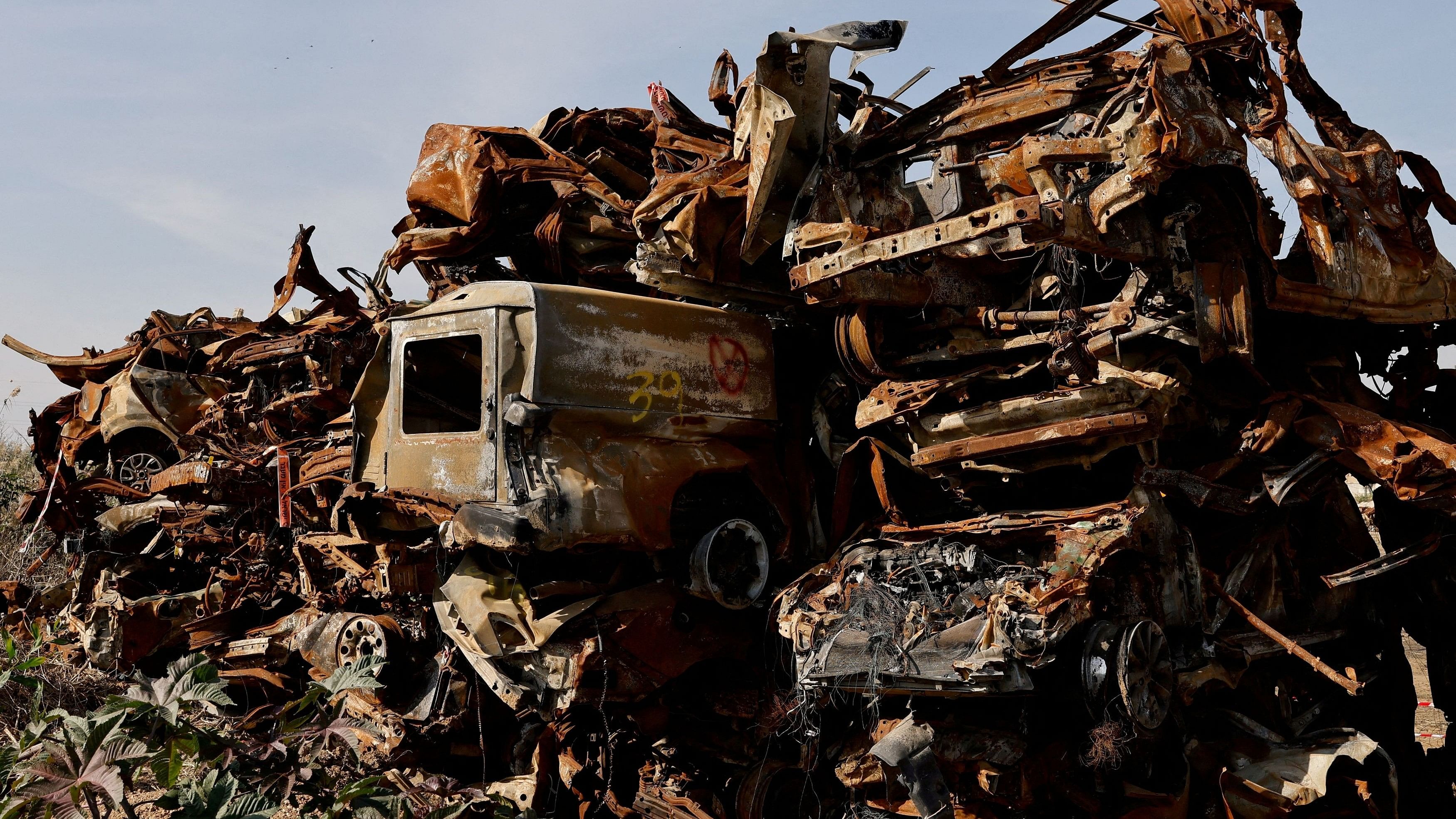
Damaged vehicles from the October 7th, 2023 Hamas attacks are placed at a site near Netivot, amid the ongoing conflict between Israel and the Palestinian Islamist group Hamas.
Credit: Reuters Photo
South Africa and Israel will face each other at the top UN court on Thursday where judges will hear a South African case accusing Israel of genocide against Palestinians in Gaza and requesting an emergency suspension of Israel's military campaign.
The International Court of Justice (ICJ) in The Hague will have two days of hearings this week in a case brought in late December accusing Israel of failing to uphold its obligations under the 1948 Genocide Convention, reported Aljazeera.
Here is all you need to know:
Israeli forces launched their offensive after fighters from Hamas-ruled Gaza carried out an October 7 cross-border rampage in which Israel says 1,200 people were killed and 240 abducted.
South Africa and Israel are both parties to the Genocide Convention, which obliges them to not commit genocide and also to prevent and punish it. The treaty defines genocide as "acts committed with intent to destroy, in whole or in part, a national, ethnical, racial or religious group".
The hearings will deal exclusively with South Africa's request for emergency measures ordering Israel to suspend its military actions in Gaza while the court hears the merits of the case - a process which could take years. Colombia and Brazil expressed their support for South Africa late Wednesday.
Post-apartheid South Africa has long defended the Palestinian cause, a relationship forged when the African National Congress's struggle against white minority rule was cheered on by Yasser Arafat's Palestine Liberation Organisation.
Israeli government spokesperson Eylon Levy said ahead of the hearings that Israel "remains committed to and operates in accordance with international law" and stressed all military action is directed against Hamas.
How will the ICJ decide?
The ICJ comprises fifteen judges who are appointed through separate and simultaneous elections at the United Nations General Assembly (UNGA) and the UN Security Council.
While any country can propose candidates, no two judges can come from the same country. Since neither South Africa, Israel have their representation in the judge panel, they can each appoint one ad hoc judge to join the bench.
At the hearing, both the sides will present their arguments and the 17 judges will sit at the head of the Great Hall of Justice at the ICJ. However, there will not be witness, and any question that will be posed at the hearing need not be answered on the spot. But can be given in writing later.
A ruling on the emergency measures is expected later this month. The court will not rule at that time on the genocide allegations, which might take several years. The ICJ's decisions are final and without appeal, but the court has no way to enforce them.
(With Reuters inputs)